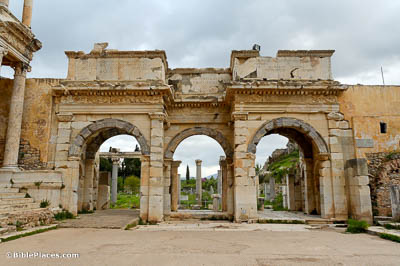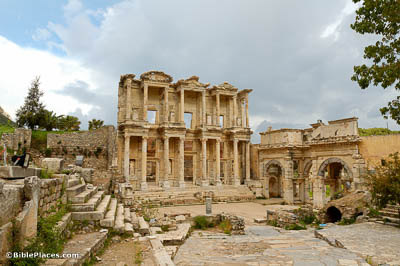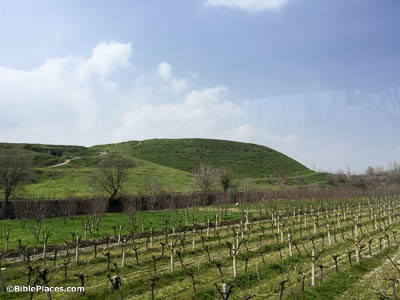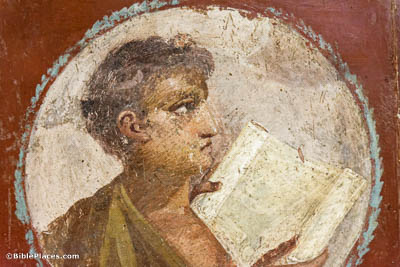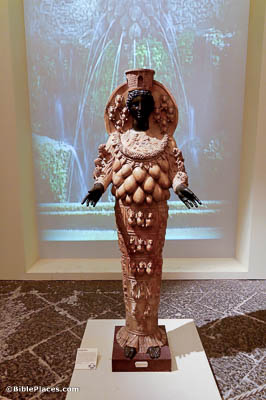Paul passed through the interior regions and came to Ephesus (Acts 19:1).
Paul stayed in Ephesus for about three years, during which time he undoubtedly became very familiar with the city’s sights. This gate, the Gate of Mazaeus and Mithridates, was built in 3 BC by two slaves of Augustus, out of gratefulness that he had freed them. There can be little doubt that Paul passed through this gate many times on his way in and out of the commercial agora.
